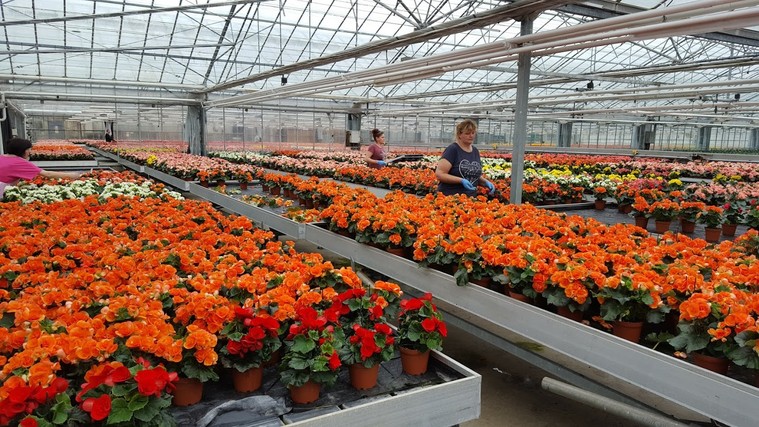The crisis has had a massive impact on an industry that employs – or would like to employ – more than 10,000 people and provides UK supermarkets and the food service industry with salad crops, fruit and vegetables worth £1 billion annually.
Now, though, the post-Brexit shortage of European labour and the eye-watering rise in the cost of gas and other supply chain materials has left members of the West Sussex Growers Association struggling to stay in business.
“One of the biggest impacts is on forward planning,” explained John Hall, a past chairman of the association who now acts as a consultant to its executive committee. “If you aren’t sure you are going to be able to staff it, what’s the point of building it?
“The irony is that the Government is asking growers to produce more food to reduce our dependence on imports, but we are being forced to go in the opposite direction. Far from producing more food, we are producing less because we can’t get the workers we need.
“We have carried out a survey of our members every week and they have reported a regular staffing shortfall of between 10.5% and 12%. On occasions it’s been as high as 12.5%, which is well over 1,000 people, people we need to keep the supermarket shelves full of UK produce like peppers, tomatoes, herbs, lettuce, sweetcorn, courgettes, chillies, strawberries and raspberries.”
The association represents growers, most of whom grow under glass and are based in and around Chichester and Bognor Regis, making the most of that area’s high light levels, particularly in the depths of winter. Some are now planning to delay next year’s planting to avoid paying for gas during the coldest months.
Mr Hall is aware of large quantities of strawberries and courgettes that went unpicked this year, but pointed out that the labour shortage also had less obvious impacts. “It’s not just about being able to harvest and pack the produce,” he said. “In the case of some intensive crops, some of the crop work was done less frequently, and that will have had an unknown impact on yields, and thus on profitability.”
He also knows that the problems can’t be solved locally, since the workforce issue has become a political one and energy prices are determined by global factors.
Mr Hall shares the almost unanimous demand for the seasonal labour scheme – still referred to as a ‘pilot’, as he pointed out – to be made permanent, but with 70,000 visas available each year rather than the current 30,000.
“Here in the south, we have almost zero unemployment but we have frightened away our eastern European friends, leaving us with nowhere to go,” he said. “The idea that we are somehow going to find this labour locally is just ridiculous. The Government doesn’t seem to have grasped – or doesn’t want to admit – that a lot of people were over here doing jobs that local people didn’t want to do.
“And it’s not just basic picking jobs but more technically skilled workers, too. There are vacancies at most levels in these companies.”
Mr Hall estimated that costs faced by growers had risen by around 10%. “That’s not just in terms of workers – even if you can find any – but for things like plastics, packaging and transport, and those costs will have to feed through into price rises.”
Energy, meanwhile, is another unknown. “Some of our growers bought gas forward at a manageable price, but even those that did so only have a limited quantity. Meanwhile the biggest problem is unpredictability. Some of my consultancy clients are asking me: ‘What figure do I put in my spreadsheet for energy next year?’ – I can’t give them an answer.”
Along with a permanent scheme offering 70,000 visas, Mr Hall wants the Home Office to add horticulture to the skilled labour shortage list. He also wants the minimum wage at which visa restrictions no longer apply to be reduced from £25,600 to closer to £20,000.
“Solving this problem needs political movement and political will,” he concluded.
• According to a Tweet posted by the Lea Valley Growers Association, half of the members of that group are not planning to grow crops next year because of rising energy costs and low margins. The association has also highlighted the lack of available labour.




